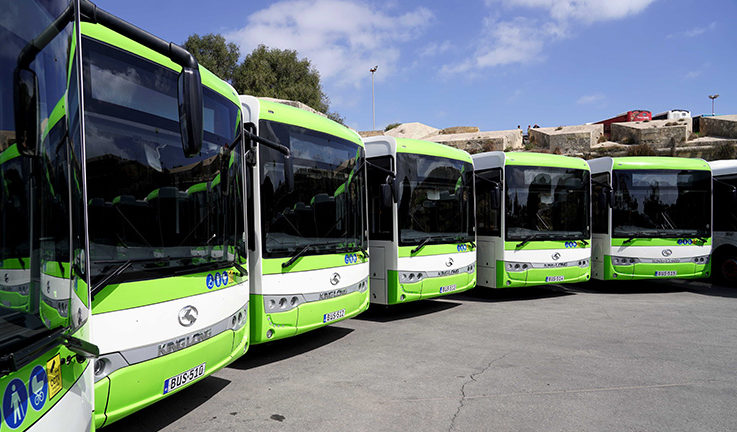
Photo: kelly-sikkema-unsplash
Berlin to cut e-scooter numbers in the city centre
22 November 2023
by Christopher Carey
Berlin’s regional transport ministry has announced plans to reduce the number of shared e-scooters available within the central area of the German capital.
From March 2024, the number of e-scooters allowed to operate within the centre will be reduced from 24,000 to 19,000.
The move is largely attributed to e-scooters blocking pavements and creating hazards for pedestrians.
“Micromobility belongs to modern transport services. However, these services must be as orderly and safe as possible for all users,” Manja Schreiner, Berlin’s Transport Minister, told local newspaper Tagesspiegel.
The reduction is also accompanied by stricter regulations for providers, who will have to deploy more staff for on-street patrols to “ensure order, especially in hotspots, and to eliminate the dangers to foot traffic caused by their rental vehicles”.
Operators will be required to share mobility data via a digital interface which provides information about general user behaviour and how companies deal with the distribution of vehicles throughout the city.
Parking issue
According to a November 2022 study by the German Pedestrian Lobby Association, two-thirds of electric scooters and bicycles in Berlin are left standing or lying in the wrong place.
In compiling their research, the association surveyed a 700×700-metre area of three different Berlin neighbourhoods – Mitte, Schöneberg and Tempelhof.
The association revealed it came across 634 rental vehicles, 428 of which it said were incorrectly parked.
Five e-scooter firms – Bolt, TIER, Bird, Lime and Voi – currently operate in the city.
“Short-term fix”
Commenting on the announcement, a Voi spokesperson told Cities Today: “Adjusting scooter numbers is a good start for better implementation, but we need a holistic transportation plan.
“Reducing the fleet is clearly a short-term fix – Berlin has improved with new infrastructure, and we should build on that success.
“But it’s tough when there are almost 230,000 parking spaces just for cars in the inner city.
“Voi believes in creating a more balanced and accessible urban space for various mobility options. Our primary focus is not on the city centre but on ensuring good connectivity in the outskirts.”
The issue of parking availability was also cited by Lime.
“To ensure e-scooters are integrated into the city’s transport network in a way that meets demand and ensures streets are safe and tidy for pedestrians, we need the provision of additional parking spaces,” a Lime spokesperson said.
“We would like to see the Senate invest urgently in such infrastructure to support the much needed reorganisation of Berlin’s transport system, and encourage even more people out of private cars.”
Image: kelly-sikkema-unsplash










